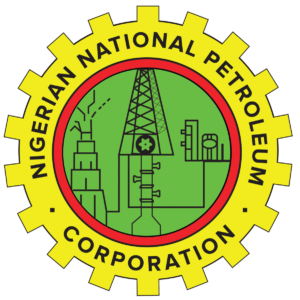The Group Managing Director (GMD)/Chief Executive Officer (CEO) of the Nigerian National Petroleum Company Limited, Malam Mele Kyari, started his weekly activities with an interview with Bloomberg TV in Abu Dhabi, the United Arab Emirates (UAE).
Kyari said in the interview that Nigeria would ramp up oil production to 1.8 million barrels per day by the end of 2021, as against the 1.45 million BOPD in September.
He noted that in spite of this projection, Nigeria could easily attain its maximum crude oil production capacity of 2.5 million barrels per day with the combined production of crude and condensates.
Kyari said: “It is obvious that by the close of the year we will get back to the 1.7m-1.8m barrels per day of crude only; as you may be aware, when we mention these figures, I am talking about crude oil only.”
He said that at the height of the COVID-19 pandemic, Nigeria shut down some of its wells and were yet to get back to their full production capacities.
Kyari, however, said the NNPC was assiduously working towards bringing the facilities back to optimal production before the end of the year.
The GMD further explained that the COVID-19 pandemic and the lack of clarity in the sector led to drought in investment in the Nigerian oil sector.
This situation, he said had been corrected with the newly enacted Petroleum Industry Act (PIA) 2021 which provided ample investment opportunities in the Nigerian Oil and Gas Industry.
Also in the week, the NNPC Limited called on the Nigerian Association of Petroleum Explorationists (NAPE) and other stakeholders in the petroleum industry to focus on developing home-grown technology solutions that can improve performance and reduce carbon footprint in oil and gas operations.

The GMD/CEO of the company, Malam Mele Kyari, gave the charge in a virtual goodwill message to the 39th NAPE Annual International Conference & Exhibition with the theme – Petroleum Exploration and Production in a new World: What Next After the Global Crisis?
Kyari said it had become imperative for the industry in Nigeria to embrace the new realities of the post COVID-19 operating environment.
This, he said can be achieved by improving on technology beyond the traditional seismic way of exploration in a manner that would support the Federal Government in its climate change mitigation measures.
He stated that one of the key challenges to the campaign for reduced greenhouse gas emissions was the issue of energy poverty which was the basis for President Muhammadu Buhari’s advocacy for energy justice at the just concluded COP26 Climate Change Conference in Glasgow, Scotland.
Kyari said that while he agree that the country should transit to a net-zero carbon situation by year 2060, he also said it was necessary to create a balance by providing the right technology and finances to enable less developed countries bridge the gap and make their own transition at a convenient pace.
On the PIA, the NNPC boss said that the new oil reform legislation offered refreshing opportunities especially in the deep-water, noting that Nigeria’s reservoirs were not as complex as elsewhere in the world.
He therefore called on NAPE to innovate and ensure that the country reaps bountifully from its exploration activities.
He said the country would be relying on professional support from organisations like NAPE to achieve the desired aspirations in this regard, while noting that focus must be on creating the capabilities and capacities that can sustain resilience in navigating new industry realities.